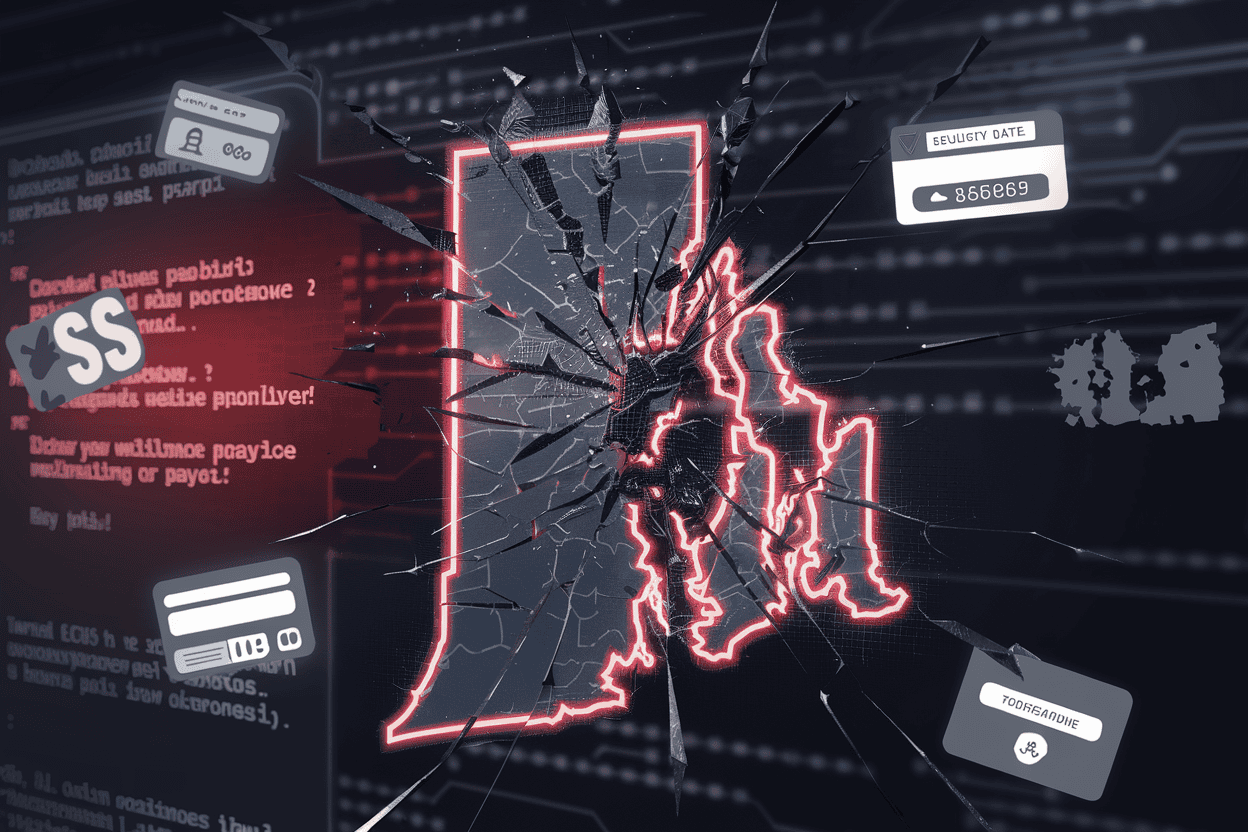Rhode Island's RIBridges Cyberattack: How Proactive Cybersecurity Could Have Helped
In December 2024, Rhode Island’s RIBridges system, the platform used for public assistance programs like Medicaid and SNAP, became the victim of a ransomware attack. The hacking group Brain Cipher infiltrated the system, encrypted files, and demanded a hefty ransom. As a result, thousands of residents had their sensitive data—like Social Security numbers and bank details—exposed.
This attack was more than an IT failure; it disrupted essential services, forcing the state to revert to paper applications and manual processes. For residents who depend on these programs, the inconvenience and worry were unavoidable. The attack highlights an uncomfortable truth: organizations relying on outdated systems without proactive defenses are easy targets.

What Went Wrong—and What Could Have Prevented It
No single defense can stop every attack, but two proven measures could have significantly reduced the risk: penetration testing and data encryption.
Penetration Testing: Staying Ahead of the Hackers
Penetration testing, sometimes called ethical hacking, involves security experts simulating cyberattacks to identify weaknesses before bad actors exploit them. If regular tests had been conducted on the RIBridges system, Brain Cipher’s entry point might have been discovered and fixed long before the attack.
Cybersecurity professional John Chambers summed it up perfectly: “The question isn’t if you’ll be hacked, but whether you’re ready for it. Penetration testing finds the cracks before someone else does.” ( eccouncil.org )
Organizations that make penetration testing a regular practice get a clearer picture of their vulnerabilities—whether it’s outdated firewalls, weak access controls, or unpatched software. It’s not just a technical exercise but a critical part of risk management.
Encryption: Making Stolen Data Useless
While penetration testing stops intruders at the gates, encryption protects the information they’re after. It works by turning sensitive data into unreadable code, accessible only with the right decryption key. Even if attackers manage to steal data, encryption ensures they can’t use it.
In the case of the RIBridges breach, strong encryption could have made Brain Cipher’s stolen files worthless. Instead of holding valuable personal details hostage, they would have walked away with nothing but digital noise.

Learning from Other High-Profile Breaches
The RIBridges attack is the latest in a series of incidents targeting public services and private organizations.
In 2013, Target’s data breach exposed credit card details of over 40 million customers. Hackers gained access through a poorly secured third-party vendor, a mistake that could have been caught with stronger risk assessments. More recently, the Hot Topic breach in 2024 compromised the records of 350 million customers, showing how retail remains a prime target for ransomware groups.
Attacks on government systems aren’t new either. The City of Atlanta ransomware incident in 2018 took down essential city services, from water bills to court systems, and cost millions to recover. These cases, like RIBridges, prove that outdated systems, lack of testing, and poor data protection are ticking time bombs.
How Organizations Can Turn Lessons into Action
The RIBridges incident should serve as a wake-up call for any organization managing sensitive data. Defenses must go beyond basic protections to address both system weaknesses and data security.
Regular penetration testing gives organizations an opportunity to understand where they’re vulnerable. Ethical hackers simulate real-world attacks to uncover gaps, from outdated systems to employee mishaps. Fixing these issues before attackers find them can stop breaches in their tracks.
Encryption, on the other hand, acts as a safety net. If attackers manage to bypass other defenses, encryption ensures they leave empty-handed. Modern encryption methods can secure everything from personal records to financial data, creating a final line of defense that keeps information safe.
No organization can assume they’re immune. Attackers aren’t just targeting massive corporations; they’re going after state systems, hospitals, small businesses, and schools. The cost of ignoring security risks—financially and in lost trust—continues to climb.
The Bottom Line
The RIBridges attack disrupted lives and exposed thousands of people to identity theft, but it didn’t have to happen. Penetration testing could have identified the vulnerabilities Brain Cipher exploited, and encryption could have protected residents’ sensitive information.
Every organization, from state agencies to private businesses, has a responsibility to secure the systems and data people rely on. By taking proactive steps—like testing systems regularly and implementing encryption—these breaches can be prevented before they happen.
Cybersecurity isn’t just a technical concern; it’s about protecting people, their trust, and the services they depend on every day.



